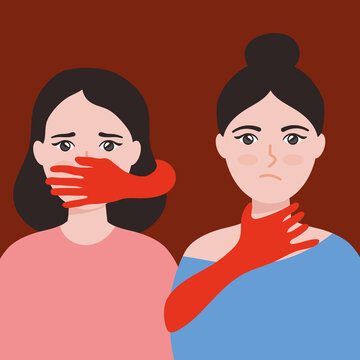Misogynistic mothers are women who, either consciously or unconsciously, harbor negative beliefs and attitudes toward women, including their own daughters. This form of maternal behavior can have deeply damaging effects on daughters, shaping their self-worth, relationships, and overall perception of their place in the world.
The Nature of Misogynistic Mothering
A misogynistic mother may hold prejudiced views about women’s roles, capabilities, and value. She may exhibit overt hostility or passive-aggressive behaviors that reinforce these beliefs. Grossly, these mothers may also view their daughters as competition, leading to feelings of jealousy or resentment rather than nurturing or support. There are several ways a misogynistic mother might manifest these harmful behaviors:
1. Undermining Self-Esteem
Misogynistic mothers often criticize their daughters for traits that are traditionally seen as feminine, such as emotional expression, sensitivity, or physical appearance. They may make harsh comments about their daughter’s looks, weight, or how they dress. This constant criticism, paired with unrealistic expectations of perfection, can lead to significant issues with body image, self-doubt, and insecurity.
In some cases, the mother may also dismiss or belittle her daughter’s achievements, especially if those achievements challenge traditional gender roles. A misogynistic mother may downplay the importance of education, career success, or personal ambitions if these go against her own narrow view of what a woman should be.
2. Enforcing Gender Stereotypes
A misogynistic mother might push her daughter into restrictive gender roles, believing that certain behaviors, careers, or aspirations are "unfeminine" or inappropriate for a woman. She might discourage her daughter from pursuing interests in areas like science, sports, or leadership because these fields are often associated with men. In contrast, she might pressure her daughter to focus exclusively on domestic tasks, appearance, or nurturing roles.
This kind of gender policing can limit a daughter’s sense of possibility and autonomy. The message that her value is tied to how well she conforms to traditional gender expectations can lead to frustration and feelings of inadequacy when she doesn’t fit the mold.
3. Reinforcing the Idea of Female Competition
Rather than fostering a supportive and cooperative relationship, a misogynistic mother may encourage her daughter to view other women as rivals. She may make negative comments about other women’s appearances, behaviors, or choices, promoting the idea that women should constantly compare themselves to one another. This can lead to a toxic dynamic where the daughter learns to view her value in relation to other women’s shortcomings or failures, rather than her own unique strengths.
Some misogynistic mothers might also compete with their daughters directly, especially if the mother feels threatened by the daughter’s growth or achievements. This could manifest as jealousy over the daughter's success, attention, or relationships, with the mother undermining her or creating rivalry between them.
4. Sexualization and Objectification
In more extreme cases, a misogynistic mother may project her own unresolved issues with sexuality onto her daughter. She might over-sexualize her daughter’s appearance or push her to use her looks to gain approval or attention. This could be through comments about how attractive the daughter is, how she should dress to please others, or how her physical beauty is the most important aspect of her value as a woman.
On the other hand, a misogynistic mother might shame her daughter for expressing any sexual autonomy or desire, teaching her that her body is something to be controlled, hidden, or restricted. This mixed messaging can lead to confusion about sexual identity and healthy boundaries.
5. Overbearing Control and Lack of Autonomy
A misogynistic mother might attempt to control her daughter's life in ways that limit her independence and self-determination. She may attempt to dictate her daughter's choices in relationships, career, friendships, or even the way she spends her time. This can stem from a deep-rooted belief that women need to be “protected” or “guided” by others, particularly men, and that their autonomy is dangerous or inappropriate.
Such mothers often feel entitled to control their daughter's decisions, regardless of the daughter’s desires or aspirations. This undermines the daughter's ability to develop confidence in her own decision-making abilities and can create a long-lasting dependency on the mother for validation and direction.
6. Emotional Manipulation and Gaslighting
In some cases, a misogynistic mother may gaslight her daughter by making her question her own experiences and perceptions. She may trivialize or invalidate her daughter’s feelings, especially when those feelings contradict the mother’s views. For example, if the daughter expresses frustration with the unfairness of gender expectations or personal ambitions, the mother might respond by suggesting that the daughter is being too "emotional," "irrational," or "difficult." This type of manipulation can make the daughter feel like her own voice doesn’t matter, leading her to suppress her feelings or avoid speaking out for fear of being dismissed.
7. Perpetuating the Legacy of Misogyny that comes with Patriarchy
A misogynistic mother may teach her daughter to internalize these damaging beliefs, perpetuating a cycle of misogyny that can affect not only her relationships with other women but also how she interacts with men. She may learn to prioritize pleasing others over her own needs, avoid conflict, and adopt self-destructive patterns of behavior to gain approval. A child may grow up to be a woman that becomes a doormat for men. Exhibit A:
This is a common occurrence in general with the patriarchal system that men can run rampant, even be heinous criminals like serial rapists or killers but various women who despise themselves or were inadequately raised will flock to these men. There is an innate lack of self-care or survival instinct in them.
In many cases, the mother-daughter relationship becomes a battleground for power, control, and validation, rather than a source of nurturing, mutual respect, and love. The emotional toll on the daughter can be profound, affecting her self-worth, mental health, and ability to trust or connect with others.
The Misogynistic Mother's Feelings
A misogynistic mother’s feelings toward her daughters can be deeply complex and contradictory. While every individual is different, there are some common emotional dynamics and patterns that may emerge in such relationships. Misogyny, when internalized, can affect how a mother views not only other women but also herself and her own children—particularly her daughters.
Below are some feelings and behaviors a misogynistic mother might experience or project:
1. Jealousy or Resentment
A misogynistic mother may feel threatened or envious of her daughter's grace, femininity or beauty, especially if she perceives her daughter as a rival, even unconsciously. This could stem from the belief that women’s worth is tied to their looks, and a daughter’s attractiveness or growing maturity may trigger feelings of insecurity or jealousy in the mother. If there is a male figure in the home, even if their daughter is a child or the male figure is not a predator, the mother will be jealous of her daughter. The mother's internalized beliefs about women’s value may lead her to feel that her daughter is an obstacle to her own sense of self-worth or a reminder of her own perceived inadequacies.
2. Criticism and Devaluation
A misogynistic mother might express her feelings through criticism, often focusing on the daughter’s physical appearance, behavior, or choices. She might tell her daughter that she is not good enough, that she should be more "ladylike," or that her appearance isn’t up to societal standards. Some mothers will pride themselves in performative feminism as a cover, so when they covertly abuse their daughters with misogynistic views. This can result in a constant undermining of the daughter’s self-esteem, as the mother might devalue the things that make the daughter unique or strong, reinforcing negative stereotypes about women.
3. Control and Manipulation
Some misogynistic mothers might try to control their daughters in a way that reinforces traditional gender roles, often viewing their daughters as extensions of themselves. This could manifest as pushing the daughter to conform to stereotypical notions of what a "proper" woman should be, or manipulating her into competing for male attention or approval. The mother may feel that her daughter should behave in ways that are more about pleasing others—particularly men—rather than expressing her authentic self. They may even try to force their daughters to have contact with an abusive male figure in their lives with the excuse that this person is a family member.
4. Enmeshment or Discomfort with Independence
A misogynistic mother may feel uncomfortable or even threatened by her daughter's growing independence, especially if the daughter challenges traditional gender expectations. As the daughter becomes more confident, the mother may struggle with feelings of inadequacy or fear of being overshadowed. The mother’s own unresolved issues with autonomy and power might lead her to actively try to suppress her daughter's assertiveness or achievements, creating a stifling environment where the daughter feels her accomplishments are unrecognized or rejected.
5. Projection of Internalized Misogyny
The mother’s own internalized misogyny may lead her to project her negative feelings about women onto her daughter. She might instill in her daughter the belief that being a woman is inherently inferior or problematic. This could include telling the daughter that her value is tied to how well she serves others, that she should be modest or self-sacrificing, or that she will always be judged more harshly than men. The mother may actively teach her daughter to conform to the same gendered standards that she herself has struggled with, passing on a cycle of self-doubt and gender-based oppression.
6. Emotional Distance or Coldness
Misogyny often goes hand-in-hand with an inability to truly appreciate the full humanity of women. A misogynistic mother may lack the capacity to fully empathize with her daughter’s experiences as a woman, leading to emotional coldness or a lack of genuine emotional support. She may fail to see her daughter as a complex individual with her own needs and desires, and instead, view her as a reflection of her own shortcomings or as someone who needs to fit into a prescribed role.
7. Shame and Guilt
At times, the mother may feel conflicted about her feelings toward her daughter. She might know, on some level, that her thoughts and actions are harmful, yet be unable to overcome her internalized misogyny. This can result in moments of guilt or shame, where the mother feels she is not living up to the nurturing, supportive ideal of motherhood. However, this guilt might be fleeting or quickly overshadowed by the mother’s ingrained beliefs about gender, solidifying the lack of change in her behavior.
8. Fear for the Daughter’s Future
A misogynistic mother might also experience anxiety or fear about the challenges her daughter will face in a world that continues to devalue women. This fear can be based on her own painful experiences as a woman—feeling as though the world is stacked against her simply because of her gender. However, instead of offering support or empowerment, the mother might teach her daughter to play small or accept second-class status to avoid the pain of confronting gender-based discrimination or inequality.
9. Lack of Genuine Empathy
A misogynistic mother may have difficulty understanding or empathizing with the struggles her daughter faces, particularly if they involve gender-based discrimination or challenges. She may minimize or dismiss her daughter’s experiences, perhaps because she herself has internalized the belief that women are meant to endure hardship silently or without complaint. This lack of empathy can contribute to the daughter’s sense of isolation and frustration. A misogynistic mother’s feelings toward her daughter are often shaped by a mixture of insecurity, internalized societal expectations, and personal experiences of gender-based oppression. The daughter may experience these dynamics in subtle or overt ways, which can have lasting emotional consequences. It is important to note that some women with misogynistic tendencies are capable of change, particularly if they begin to recognize the harmful effects of their beliefs on themselves and others. However, the emotional damage that can result from such relationships is profound and can require significant healing and self-reflection for the daughter to overcome the internalized negativity that might be passed down. Ultimately, understanding the dynamics at play in a misogynistic mother-daughter relationship is essential for breaking free from cycles of harm and promoting healthier, more supportive relationships between women.















Comments
Post a Comment
Share my thoughts